SUMMARY
This is AI generated summarization, which may have errors. For context, always refer to the full article.
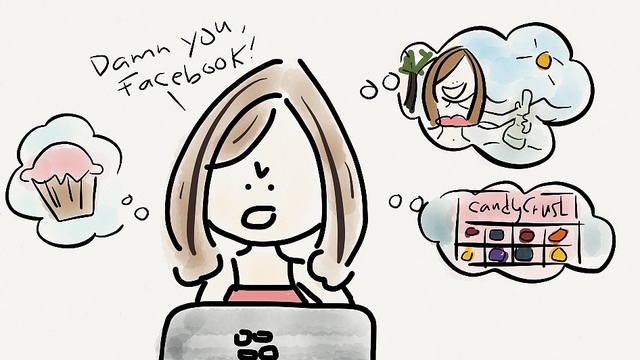
I’m always surprised to find out someone doesn’t have a Facebook account, because as much as I may heckle Facebook activity on my blog, I’m actually a huge fan. It’s like a big old reunion hall full of friends and family that you can drop in on at any time – and I love it.
It does however have its drawbacks, over and above annoyances like constant redesign, privacy issues, and people who post too many selfies.
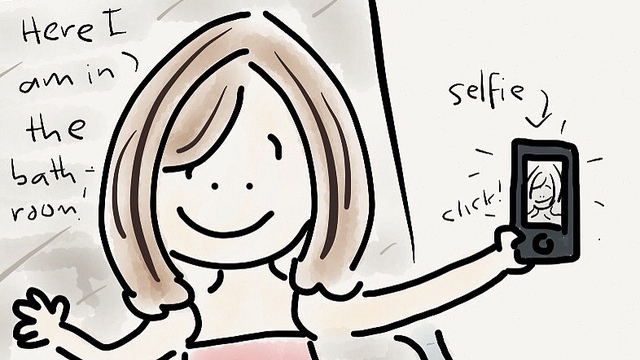
Here are a few that I think deserve some serious consideration.
1. Facebook hurts productivity.
I’ll be honest. I almost didn’t write this article because I was having a hard time tearing myself away from playing Candy Crush Saga. I briefly considered calling Chay (my editor) to claim I was feeling sick. Yeah. Sick of being stuck on the same level for two days!
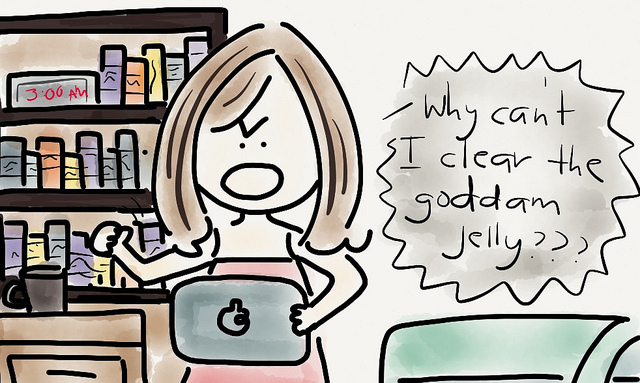
Jokes and Candy Crush frustration aside though, even if you avoid Facebook games like the plague that they are, it’s pretty obvious that Facebook can be a major distraction. It doesn’t help that Facebook is addictive. The dopamine buzz we get from receiving comments and likes is pretty difficult to resist – so much so that we end up checking on our posts more often than we should.
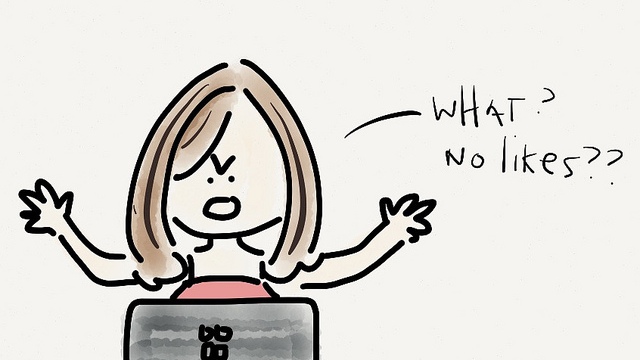
As much as we may try to deny it, that addictive distraction affects work productivity. And apparently, the more Facebook friends we have, the less we care about poor performance. This is not good.
2. Facebook makes us eat more than we should.
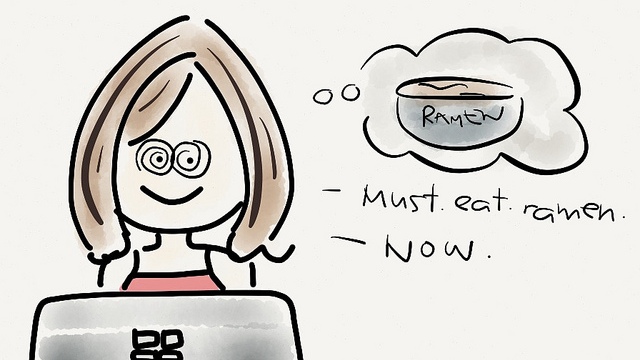
(To be fair, Twitter and Instagram do the same. They’re all equally evil in this respect.) I don’t know how serious some of you may consider this to be, but for an aging chubster like me, this is a problem.
I think everyone has experienced the hypnotic and highly influential effects of Facebook food porn, so I don’t really need to explain it. But what most people don’t know is that the little boost we get from interacting on Facebook makes us more likely to indulge in illegal (or at least inadvisable) food items when we shouldn’t.
“While a new study in the Journal of Consumer Research finds that just 5 minutes on Facebook can temporarily improve your self-esteem when you focus on close friends, here’s the bad news: Enhanced self-esteem actually reduces your self-control when you make decisions, like choosing a snack, after browsing.” – Today.com
Apparently you’re less likely to say no to yourself when you’re feeling good, so the combination of food porn + resulting hunger pangs + happy social media time is a surefire way to Facebook yourself into fatness. Yikes.
3. Facebook makes us feel less satisfied with our lives.
As mentioned above, Facebook can enhance self-esteem. But interestingly, it seems that this happens only when your Facebook activity is focused on your own profile and updates.
When your activity focuses on the profiles and updates of other people, it’s the opposite. The more you look into the lives of others via their Facebook updates, the less happy you feel about your own life.
This is called Facebook envy, and believe me, it’s a thing. Been there, felt that. I have this childhood friend who seems to do nothing but travel to fun places and scuba dive or go horseback riding or whatever, and every time I see her Facebook updates I always feel like an overworked, under-vacationed loser.
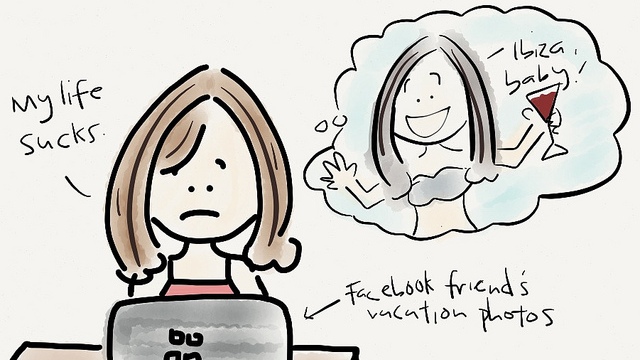
It seems I’m not alone. The most recent studies conducted on Facebook’s impact showed that one in 3 respondents felt more dissatisfied with his own life after spending time on the site.
“One of the easiest ways to feel unhappy is to compare ourselves unfavorably with others. When we’re on Facebook, we’re susceptible to undue influence of our ‘friends’’ glossy representations of themselves. Even when we know consciously that Facebook profiles are often nothing more than social billboards, it’s easy to fall into the trap of comparing our real lives with others’ advertisements of themselves.” – Pyschology Today.
Because Facebook tends to showcase happy and successful moments, we often make the mistake of assuming that other people are happier than they actually are. I mean it’s not as if people really post photos of miserable moments, right?
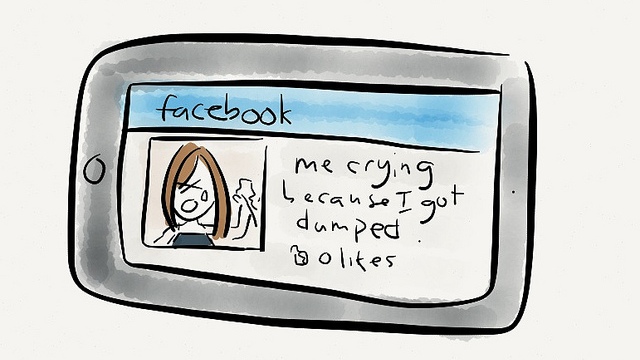
Although on some level, we know that people’s lives on Facebook don’t show the whole picture, it’s easy to fall for the happy hype anyway. This isn’t so bad if you only have a few Facebook friends, but when you have a large Facebook circle AND spend a lot of time of Facebook, it’s inevitable that the comparisons will start to get to you.
So yes, as enjoyable as it may be, Facebook does have its dangers. I don’t think that quitting Facebook altogether is the answer, but the points above do make a strong argument for cutting down considerably. As with all good things that are unfortunately also bad for you, moderation is key.
Set aside a specific time for Facebook use, and turn off notifications on your phone and/or tablet so you aren’t tempted. Limit the updates you see when you are on by using lists. And lastly, just get out there and spend more time interacting with people face-to-face. Facebook is fun, but like I said, it never really gives you the whole story. Real life is so much more real. – Rappler.com
Add a comment
How does this make you feel?
There are no comments yet. Add your comment to start the conversation.